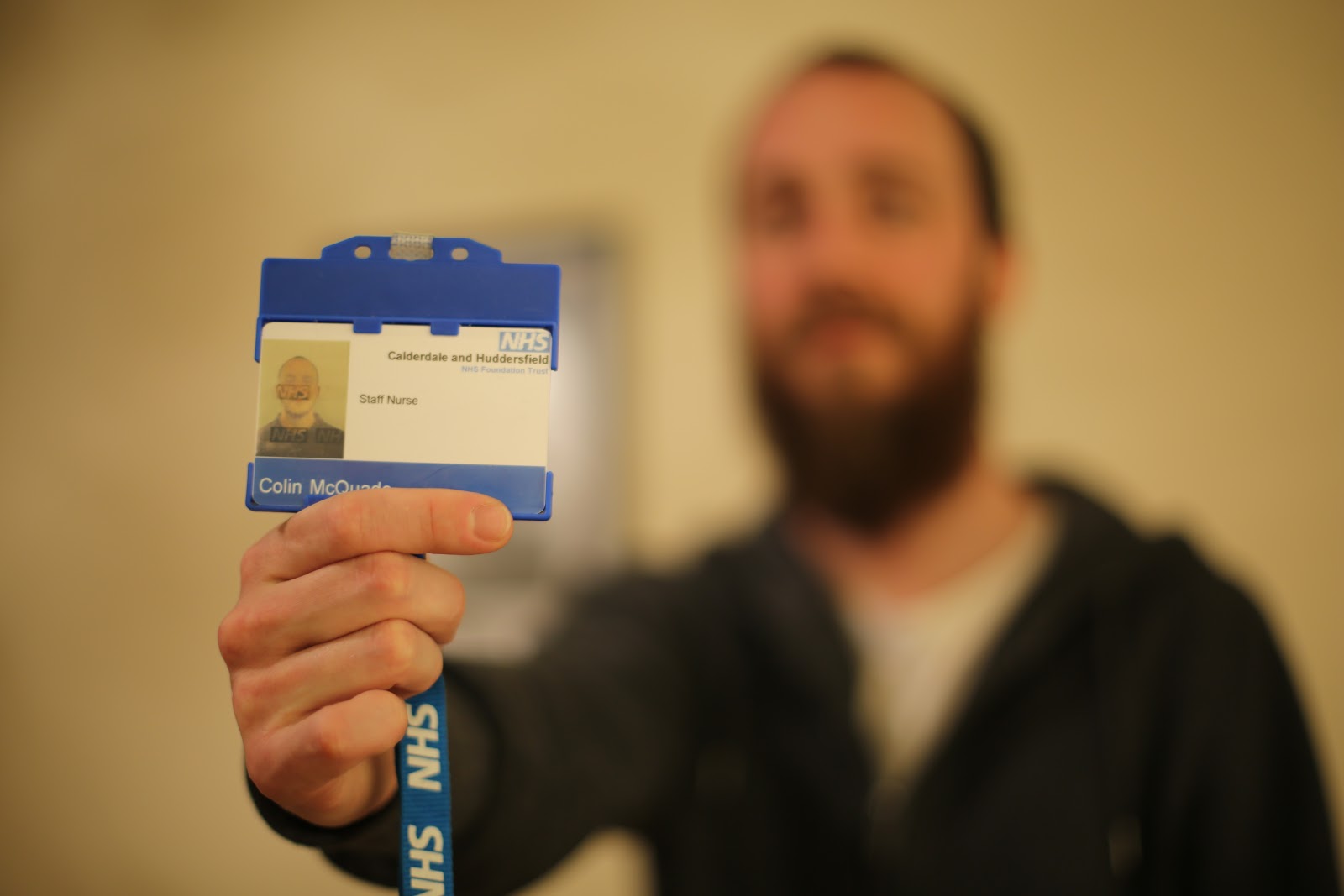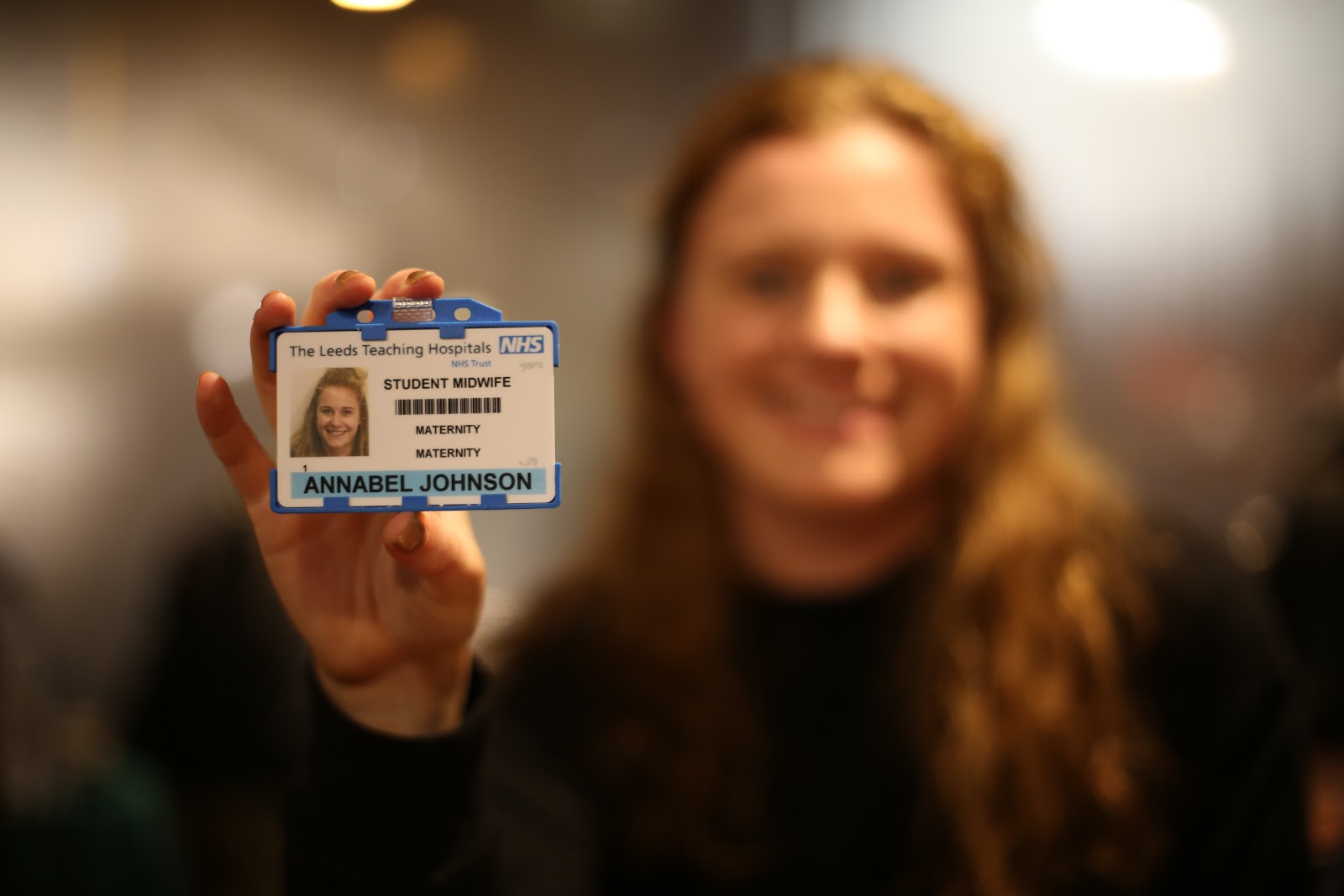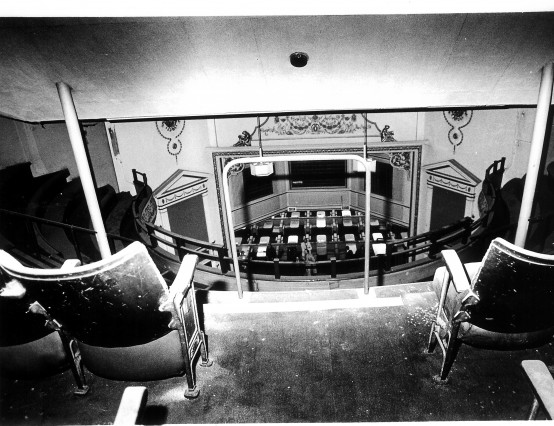The average salary for a full-time nurse sits at just over £24,000 which unfavourably compares to the UK average full-time salary of £36,000. Perhaps this wage disparity is one of the reasons why the NHS is facing a staffing crisis. With 43,000 nursing and midwifery vacancies, those on the front line are concerned that this shortage is having an extreme impact on patient safety and wellbeing of staff.
We spoke to those currently in the job to find out what they think will help tackle the problem.
An opportunity cost too high?
Sipping a lukewarm coffee, Pat Worthy (header image) stares out at her large garden. It boasts various shades of green despite the autumnal weather that has rolled into Surrey. “A good nurse is patient and not judgemental. You just have to accept people the way they are.”
Pat began her nursing training in London, 1959. She was one of the first women to benefit from the integrated degree course at St Thomas Hospital.
“In those days I really felt there wasn’t much choice, we didn’t have much career input. For women, it was a choice between teaching, secretarial work or nursing.”
None of Pat’s family had been to University, so Pat threw herself into training. “The university bit was great, we had all the freedom of students and university life. We didn’t have a lot of free time but when we did we tried to go out. We just got on with it, really.”
For current recruit Annabel Johnson, 20, midwifery was not a choice but a calling. “Nothing was going to stop me. My school didn’t know exactly what I needed to do, so when you’ve got your sights on something you just have to do it by yourself.” Now in her third year at the University of Leeds, Annabel has racked up debts of over £60,000 in pursuit of a midwifery degree, she just shrugs. “I either have the debt or I don’t go to Uni. It’s as simple as that.” She fiddles with the zip on her purse. “I will never pay it off. Never ever.”
In Pat’s eyes, the way to recruit more nurses is to make the profession aspirational once more.
“Girls didn’t go to university much then. Nowadays there are so many other opportunities, it must be quite difficult to attract nursing students.”
The staticians agree. According to official figures from the Universities and College Admissions Service, applications to study a nursing degree have fallen by 29% since 2017. The NHS are struggling to bring fresh faces into classrooms in the first place.
When Pat stepped foot in St Thomas’ hospital, staff had a range of perks. “We were well looked after, probably too well looked after.” A chuckle tumbles out of her mouth. “We certainly got fed well and lived in some of the best places in London!” Pat and her course mates were given board, transport and three meals a day, a world away from the experiences of student nurses today.
Pat would like to see a future where when children are asked what they want to be when they grow up, nursing is top of that list.
Scrapped bursaries and poorly timed loan payments
The nursing bursary formed the bedrock of many current nursing and midwifery careers and is seen to have been a critical factor in encouraging youngsters to train in the profession. Previously, students were given a non-means tested grant of £1,000 by Health Education England as well as a means tested annual bursary of up to £8,750. Newly qualified nurse Colin McQuade, 32, narrowly avoided the debt that Annabel faces, thanks to the scheme. He trained as a nurse in 2016, the final year of the nursing bursary. 
Colin sighs through his thick beard. “I don’t know how young people are going to survive. When do you have the time to keep your head above water financially?”
Alongside this economic help from the NHS, his tuition fees were also covered. “From working in the financial sector [in my previous job] I’ve always been wary of getting into debt, I know how quickly things can snowball for people. So having that security from those guys to protect me and having a little bit of income for placements, it was a great benefit to me - massive.”
The Royal College of Nursing conducted a survey in 2016 and found that two thirds of the 17,000 respondents said they wouldn’t have studied nursing if they hadn’t had access to bursary funding. This group further commented that they would not have been able to enter the profession without the financial support of the bursary.
Pat also enjoyed full board and the cost of her tuition fees were covered, “I don’t know what we would have done without the accommodation, I mean all students got their fees paid. It never really crossed your mind that it wouldn’t.” She pushes her glasses further up her nose.
“We didn’t have the money to pay, my parents certainly didn’t.”
Alongside 50 other course mates, Annabel receives a means tested student loan which she will be expected to pay back to the government when she begins the job, “Luckily I get the maximum amount which means I don’t have to work. For my nursing and midwifery flatmates, it is a different story; their loans don’t cover the rent so they all have jobs. One of my friends even has two. Obviously, other students have that issue too, but the fact that we’re on placement for three quarters of the year means that we can’t power through paid work during holidays.”
One thing certainly hasn’t changed for all three generations; breaks away from the ward are few and far between. In 2019, the average beanie-wearing, pasta-fuelled undergraduate student can enjoy 23 weeks of holiday per year. Annabel gets just seven. Financially, this is a real test. “The last loan arrives in April but I have to live off this tiny instalment of a loan until I finish Uni in September. On top of that, my rent contract runs out on the 1st July so I have to reapply to halls for three months. They will put you in the most expensive halls because you’ve got no choice. That is the most challenging part of the whole year.”
Annabel drums her fingers on the table. “Spreading out our loans differently would also be helpful.” Her hands are in full gesticulation mode now. “We have such a different approach to everyone else in the country who does a degree.”
Colin blames wider policy changes, “We have seen the stripping back of services over the last decade post-banking crisis. To really get people sticking around and involved in it they have to increase the wage to manage people’s lives and coalesce with inflation.” He runs his fingers through his thick beard. “Honestly, I could earn more at Aldi.”
Easing the financial pressure may encourage more people to enter the profession and importantly stay within it.
“Our nursing numbers doesn’t feel safe”
‘THE NHS IS IN CRISIS’ is a headline found frequently in Britain’s newspapers. Capping off the already toxic election campaign last year, an image of four-year-old Jack Williment-Barr lying on the floor of a hospital with suspected pneumonia brought fresh concern to the debate.
Pat lowers the tone of her voice and looks down her nose. Conditions weren’t all rosy in her day either. “I remember hospital beds in corridors even then!” She was yet to see the photo of Jack on the laminated floor of Leeds General Infirmary.
“I’m not sure people complained as much in the early days of the NHS. People were much more respectful of professionals back then, and they didn’t challenge in quite the same way.”
Colin has had his fair share of bad days and regularly finds himself being moved to different areas of the hospital to meet demand, “It doesn’t feel too safe at the moment in terms of our nursing numbers”, his hands gripped tight around his mug of tea. “I do find that services are quite stretched which adds to the stress that nurses are under. It trickles down from the top. If there aren’t the numbers there to guide good safe practice then everybody is going to struggle and at the end of the day – there is a human being related to that.”
His voice is slow and weary, but one year into his qualified career and there is still passion behind his words. “There are moments when I’m on the ward and I think, I could just walk away from this,” he points his index finger at various corners of the room, “but I see 7,8,9,10 patients and look into their eyes and realise I couldn’t because at the end of the day somebody suffers whenever people step away from this.” Despite the daily pressure he faces, Colin is convinced he will remain in the NHS for some time.
Even at the start of her career, midwifery student Annabel is concerned about the effects of burn out on those leaving the profession. “There’s a top point where you’re working hard and enjoying it, you can see the reward from the women. But once the staff level goes down and there are too many people on the ward, you’re not working to the best of your ability.” She shakes her head, “If the workload is just too much for too long, I think anyone would decide to go.”

Placements aren't a stop-gap for shortages
Despite political promises, the nursing bursary is currently not operational. This means that Annabel has to take on the responsibility of a full-time midwife three times a week, working 12 hour shifts on placement for nothing. In the eyes of the law, this seems unacceptable, but these hours spent training are an absolute necessity to complete her degree. “Placement should be paid. It’s crazy. Can you imagine the difference just £1 an hour would make?”
Many are calling Annabel’s work ‘free labour’ for the NHS. A petition started in 2018 campaigning for students to earn a living wage on placement gained 17,000 signatures in less than 72 hours. One year on, and the page now boasts over 500,000 supporters.
The Royal College of Nursing has got Annabel’s back. In a recent report, the union calls for updated legislation to clarify roles, responsibilities and take action on accountability for workforce planning. They argue that the inadequate staffing levels across all settings has led to an over-reliance on temporary staff, pushing nurses and midwives to leave the profession due to mounting pressures.
Dame Donna Kinnair, Chief Executive and General Secretary of the Royal College of Nursing said, “The evidence demonstrates that where more registered nurses are on shift patient outcomes improve. It is essential that employers use vital support staff to supplement the work of nurses, not replace them.”
The situation according to Donna could not be more urgent, “Staffing shortfalls are never simply numbers on a spreadsheet - they affect real patients in real communities.”
Summary: How NHS workers propose we save our NHS? |
|
For now, Annabel will continue to work 12-hour shifts completely unpaid. Money remains at the heart of her worries; pay for her placement and a reform to the loan system could go a long way. She is not asking for the earth. “I went into it knowing I wasn’t going to be a millionaire, I’m not going to be driving a Bentley.”







0 Comments